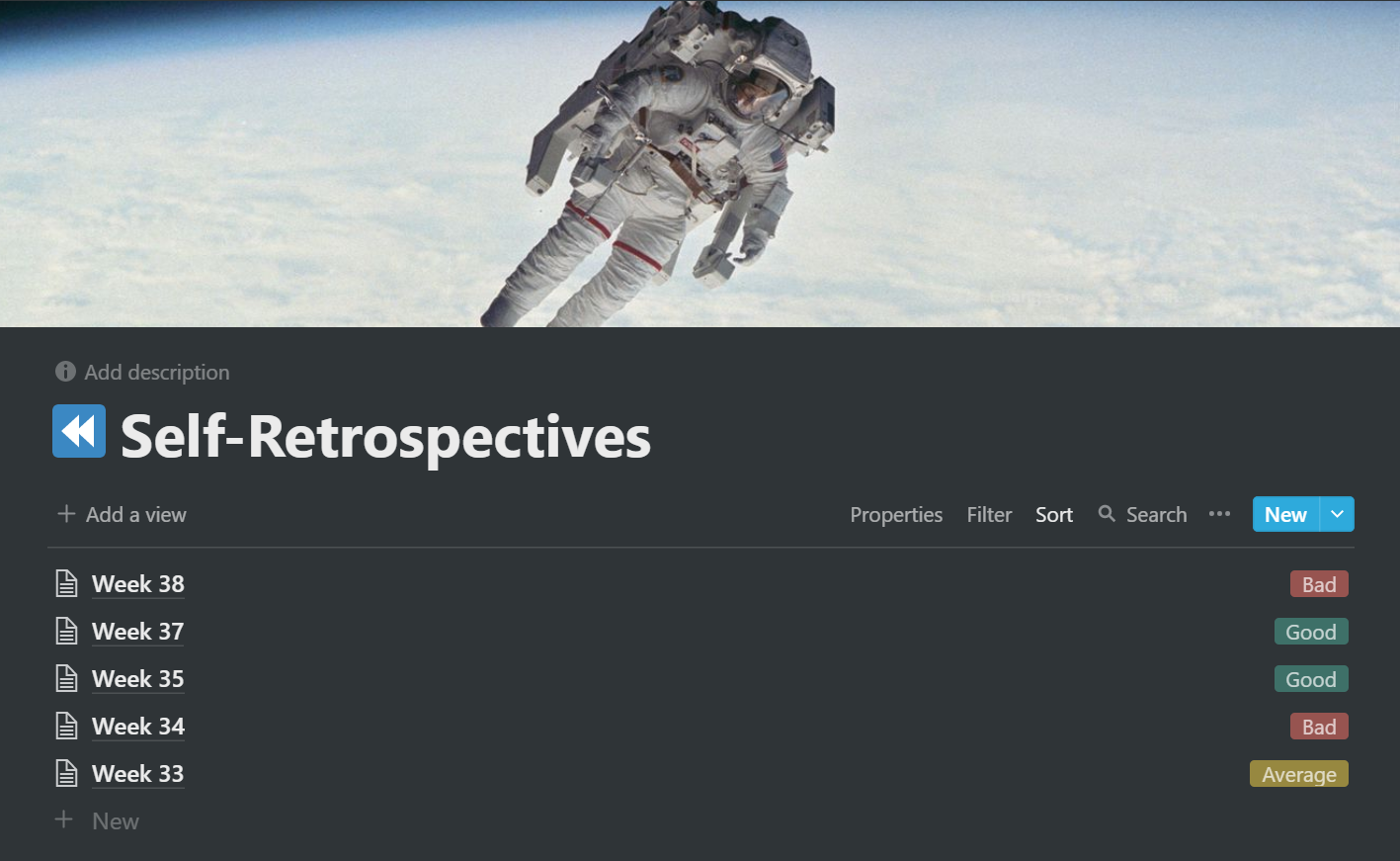Embracing the Selfie
Moving workspace from the office to the home can be challenging. The two environments are (typically) configured for polar opposite behaviour - offices for work, productivity, and collaboration; homes for avoiding work, relaxing, and a degree of solitude.
As such, I’ve found a simple bit of additional attention to how things are going can have a large impact on your quality of work and balance with life.
Staying Accountable
Retrospectives are a well known part of the agile development process (and debriefs of other forms can be seen across all sorts of operational environments). A team will come together to reflect on a period of work or activity and identify what went well and what did not.
I've always found retrospectives to be very useful, with the teams I've been in that have been the most open and honest in these processes noticeably better than those who weren't quite as proactive. A few weeks back, when considering how I was getting on remotely, I wondered whether or not I could run a self-retrospective.
Finding Your System
As an individual engineer (or other professional), clearly there is limited scope to what you can reflect on in the context of your own work. For me, this limited scope suggested a similarly limited format for my personal retrospectives. I'd reflect on three topics:
- What went well.
- What went badly.
- What I would change or do differently.
- Within this I define both immediate and ongoing
actions .
- Within this I define both immediate and ongoing
These categories are intentionally broad to catch as broad a range of points as possible. Personally, I use this to reflect on not only what has impacted my work, but also how my work has impacted other aspects of my life. The aim is to be more mindful of what's impacted me during the week, whether in work or outside of it, and reacting if appropriate to mitigate the negative and reinforce the positive in the future.
Implementation
For me I use Notion to track everything. Notion is great in that it is flexible enough to allow for fairly robust systems of recording notes/information to be easily made into a template. However the range of that flexibility can make Notion a rather messy and convoluted experience for many, so any note taking app or text/markdown editor will work just as well.
I'd suggest setting up some sort of simple, easily repeated template to fill in each week, regardless of the destination/application used. Notion allows a nice way to create new pages from templates with a couple of clicks, but even having a placeholder markdown file with prefilled headings and empty lists that you can copy and paste is a good thing to prepare.

Notion also allows, through the use of tags, a concise at-a-glance sense of how things are going more broadly (you'll see above that things are fairly neutral for me in the above screengrab). This is far from necessary and could drive anxiety depending on how critical you're being, so you may want to avoid a similar setup.
Reflection
In short, this fairly lightweight process is a means to being more mindful of how things are going. It's not going to be productive if you simply record your thoughts and never come back to them. Looking back on the first 5 weeks I'd say I managed to address ~90% of the immediate actions, but very few of the ongoing ones. That isn't to say I've failed with the ongoing actions, just that the more open nature of the steps identified tend to have a less clearly defined point of completion, and effort should be taken to maintain awareness of such things.
I've found that I've repeated fewer mistakes through this new process, and that my separation of life and work is slightly better. There are bound to be shortcomings of the process that may improve with time, but I expect that even when things more closely resemble the way they were prior to COVID, this will be something I'll continue to give attention to.